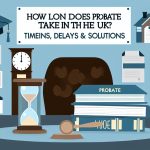Table of Contents

Key Takeaways
- Property trusts offer control and protection over your estate, ensuring your assets are managed according to your wishes.
- Understanding the difference between revocable and irrevocable trusts is key to choosing the right one for your needs.
- Setting up a property trust can provide a smooth transition of wealth to future generations and can have tax benefits.
- The process of creating a property trust involves selecting trustees, navigating legal requirements, and funding the trust.
- Real-life examples show the impact of well-structured property trusts in securing an estate and the pitfalls to avoid.
Why Property Trusts Are Your Estate’s Best Friend
Imagine you’re building a protective fortress around your home. That’s what a property trust does for your estate. It’s not just about the bricks and mortar; it’s about keeping your family home in the family, your way. Most importantly, a trust ensures that your wishes for your property are respected and carried out, even when you’re not there to oversee it.
Protection for Your Family’s Future
Setting up a property trust is like giving your family a financial umbrella on a rainy day. It shields them from unnecessary disputes and provides certainty in times of grief. Because let’s face it, life can throw curveballs, and the last thing you’d want is for your loved ones to be caught in a downpour of legal battles over your estate.
Control Over Your Estate’s Destiny
With a property trust, you’re the architect of your estate’s future. You decide who benefits, when, and how. Whether it’s making sure your spouse lives comfortably or that your children’s education is paid for, a trust ensures your assets are used exactly as you’ve planned.
Unlocking the Power of Property Trusts
Now, let’s delve into the nuts and bolts of property trusts. They’re not just for the ultra-wealthy; they’re a tool for anyone who wants to manage their estate proactively. And the beauty of it is, you have a say in the trust’s terms, which means you can tailor it to fit your unique situation.
How Property Trusts Secure Your Assets
Trusts create a legal framework that holds your property on behalf of your beneficiaries. This means that your assets are legally protected from claims that could arise from creditors, divorce settlements, or other legal issues. Therefore, your estate is more than just a collection of assets; it’s a legacy that you can protect and pass on intact.
Ensuring Smooth Generational Wealth Transition
One of the greatest benefits of a property trust is the ease with which your assets can be transferred to the next generation. Unlike the often lengthy and public process of probate, a trust operates in private, often without the need for court intervention. This not only keeps your affairs out of the public eye but also reduces the time and expense associated with distributing your estate.
Choosing the Trust That’s Right for You
Deciding to set up a property trust is the first step. The next is choosing the type that best suits your needs. It’s like picking out a new suit – you want one that fits you perfectly and meets all your requirements. For more information on how to secure your assets, consider reading about UK property protection trusts.
Comparing Revocable and Irrevocable Trusts
Revocable trusts are like a cosy sweater; you can change them as often as the weather. You retain control over the assets and can alter the terms of the trust at any time. On the other hand, irrevocable trusts are more like a locked safe. Once you place your assets inside, you can’t take them back or change the terms. This might sound daunting, but it comes with potential tax benefits and asset protection that revocable trusts can’t provide.
Deciding Between Living and Testamentary Trusts
Next, consider when you want your trust to take effect. Living trusts start during your lifetime, allowing you to see your estate plan in action. Testamentary trusts, however, are like a post-dated check; they only kick in after you pass away. The choice depends on when you want to start protecting your assets and providing for your loved ones.
Here’s a quick guide to help you decide:
- If you want flexibility and the option to make changes, a revocable living trust might be your best bet.
- If you’re looking to minimize estate taxes and protect your assets from legal threats, consider an irrevocable trust.
- For those who prefer to set things up once and not worry about them until after their passing, a testamentary trust could be the answer.
Remember, the right trust for you depends on your circumstances and goals. It’s not a one-size-fits-all solution, but a tailored suit designed to fit your estate perfectly.
The Blueprint to Establishing a Property Trust
Creating a property trust is a journey, and like any expedition, you need a map. This is your blueprint, your step-by-step guide to building a trust that stands strong against the winds of change and protects your estate.
Navigating the Legal Landscape
The first step in setting up a property trust is understanding the legal landscape. Laws governing trusts can vary, so it’s crucial to get the lay of the land. This might mean consulting with a legal expert who specializes in trusts and estate planning. They can help you navigate the complex waters of trust law and ensure your trust complies with all legal requirements.
Selecting the Trustees: A Critical Decision
Choosing the right trustees is like casting actors for a play; they must perform their roles with dedication and integrity. Trustees will manage your trust, so pick people you trust implicitly, whether they’re family members, friends, or professionals. They need to understand your vision for the estate and be committed to carrying out your wishes.
Funding Your Trust: A Step-by-Step Guide
Once your trust is set up, it’s time to fund it. This is where your assets are transferred into the trust. Here’s how to do it:
- Identify the assets you want to include in your trust, such as property, investments, or bank accounts.
- Change the ownership of these assets from your name to the trust’s name. This might involve signing deeds or changing account titles.
- Keep a detailed record of all assets in the trust, which will be invaluable for your trustees in managing the trust.
Tales from the Trenches: Property Trusts in Action
Stories from those who’ve walked this path before can shed light on the impact of property trusts. These tales are not just anecdotes; they’re lessons carved out of real-life experiences that can guide you on your journey.
Success Stories: Trusts That Stood the Test of Time
Take the story of the Smith family, who established a property trust to manage their estate. Their trust ensured that the family home was passed down through three generations, providing a stable home base and cherished memories for the family. The trust’s clear guidelines prevented any disputes and kept the property within the family, just as the original grantors had intended.
Another example is the Johnson estate, where a property trust was set up to manage a valuable art collection. The trust not only preserved the collection but also allowed for it to be displayed in museums, fulfilling the grantor’s wishes for the public to enjoy the art.
In both cases, the trusts were tailored to the family’s needs and successfully protected their assets for future generations. These stories highlight the lasting impact a well-structured property trust can have on an estate.
Learning from Others: When Trusts Get Tricky
However, it’s not always smooth sailing. Consider the case of the Thompsons, where a lack of clear instructions in the trust led to family disputes. The trustees were left to interpret the grantor’s wishes, which resulted in legal battles that could have been avoided with more detailed guidance.
In another instance, the failure to update a trust after significant life changes led to an outdated estate plan that didn’t reflect the current wishes of the grantor. This oversight caused confusion and delay in executing the estate, emphasising the importance of regularly reviewing and updating your trust.
These cautionary tales remind us that while property trusts can be powerful tools, they require careful planning, clear instructions, and regular updates to ensure they serve their intended purpose.
Your Legacy Secured: Final Thoughts
Securing your legacy with a property trust isn’t just about the legal documents; it’s about peace of mind. Knowing that your estate will be managed and protected according to your wishes provides comfort not just to you, but to your loved ones as well. It’s a way to show care and thought for their future, even when you’re no longer around.
Most importantly, remember that setting up a trust is a proactive step towards a well-planned estate. It’s a gesture that says you care enough to spare your family from potential financial and emotional turmoil. And while it might seem like a complex process, the right guidance can make it a smooth and rewarding journey.
The Long-Term Vision for Your Property Trust
Your property trust should reflect a long-term vision, one that takes into account not only your current circumstances but also your future aspirations for your beneficiaries. Therefore, it’s essential to revisit and revise your trust as life unfolds. A trust is not a static document; it’s a living arrangement that should evolve with your life’s changes and milestones.
Getting started with a property trust is about taking that first step. Reach out to a solicitor who specializes in trusts and estate planning, gather your financial documents, and start the conversation about what you want your legacy to look like. And remember, the sooner you start, the sooner you’ll have the assurance that your estate is secure.
Frequently Asked Questions
When it comes to property trusts, there are always questions. Let’s tackle some of the most common ones to help clarify any lingering doubts you may have.
Can I change my trust once it’s set up?
Yes, if it’s a revocable trust, you can make changes as needed. Life is full of surprises, and your trust can adapt to them. However, if your trust is irrevocable, changes are much more challenging and often impossible without court approval.
How do property trusts affect my taxes?
Property trusts can have various tax implications. For example, revocable trusts typically don’t change your tax situation, while irrevocable trusts can potentially reduce estate taxes. It’s essential to consult with a tax advisor to understand how setting up a trust will affect your tax obligations.
Here’s a simplified breakdown:
- Revocable trusts: Generally, no immediate tax benefits, but offer flexibility.
- Irrevocable trusts: Possible estate tax reduction, but less flexibility.
What happens if the trustee cannot fulfil their role?
If a trustee can no longer serve, a successor trustee, whom you’ve named in the trust document, will take over. It’s crucial to choose a reliable successor trustee to ensure a smooth transition and continuous management of the trust.
Are property trusts relevant for small or moderate estates?
Yes, property trusts can be beneficial for estates of all sizes. They provide privacy, avoid probate, and can help manage assets more effectively, regardless of the estate’s value.
Consider these points:
- Smaller estates can benefit from the streamlined process a trust offers.
- Trusts can minimize the burden on your beneficiaries, no matter the estate size.
How can I ensure my trust reflects my wishes after I pass?
Clear, detailed instructions in your trust document are vital. Regularly review and update your trust to reflect life changes, and communicate your wishes to your trustees to ensure they understand their role and your intentions.
Here’s a checklist to keep your trust aligned with your wishes: consider incorporating a Home Protection Trust into your will.
- Review your trust annually or after significant life events.
- Ensure your trustee is fully informed about the terms of the trust.
- Keep open lines of communication with beneficiaries about your intentions.
By addressing these questions and taking the necessary steps, you can ensure that your property trust serves its purpose effectively, safeguarding your estate and providing for your loved ones according to your wishes.






